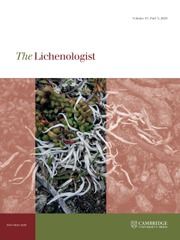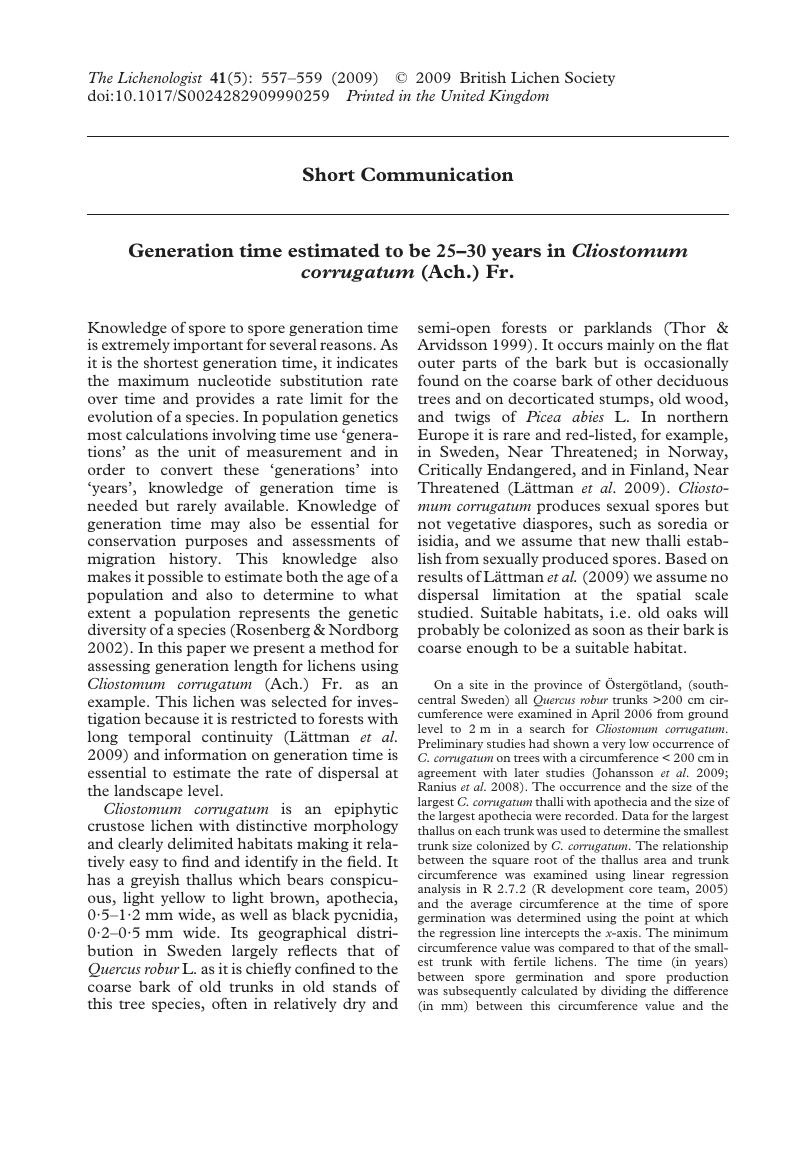Crossref Citations
This article has been cited by the following publications. This list is generated based on data provided by Crossref.
MATTSSON, Jan-Eric
HANSSON, Anne-Charlotte
and
LINDBLOM, Louise
2009.
Genetic variation in relation to substratum preferences ofHypogymnia physodes.
The Lichenologist,
Vol. 41,
Issue. 5,
p.
547.



